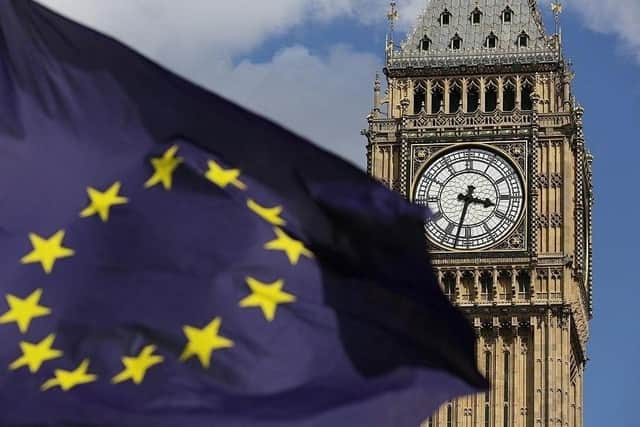Far from reducing net migration, Brexit has actually fuelled it - Will Kemp
Firstly, the UK has lost around 500,000 EU workers since the referendum in 2016, according to the Office for Budget Responsibility; this has reduced unemployment but also fuelled wage rises to attract staff who would not otherwise seek such work (especially in agriculture, health, construction and the south-east), thereby increasing price inflation, harming the economy and signalling a labour shortage to migrants elsewhere.
Secondly, many businesses have had to move to mainland Europe to remain in the Single Market, hence higher levels of emigration, meaning fewer jobs in the UK and about £40bn a year less revenue to the Treasury according to the Financial Times, leading to a drop of about 6 per cent in public spending by the Government and further economic harm. Whilst the high figure of migrants in 2022 is partly due to an influx of Ukrainian refugees, Hong Kong nationals and foreign students returning to the UK now Covid has subsided, most are likely to come from further afield than the EU. The OBR predicts net migration – the number of immigrants entering a country minus emigrants leaving it – is likely to “settle” in due course at around 245,000 a year.
Advertisement
Hide AdAdvertisement
Hide AdAll this contrasts sharply with the “tens of thousands” of migrants promised by the Vote Leave campaign in 2016 and its claim – as defended by Boris Johnson – that Brexit would create an extra £18bn a year to flow into UK coffers and help fund the NHS.


Instead, the OBR concluded last year that Brexit has had a “significant adverse impact” on trade equivalent to the loss of at least 4 per cent of Gross Domestic Product, the value of goods and services produced by a country in a given period; the Financial Times considers this equates to £100bn a year in lost output for the U, which already has a debt of £2.4bn.
As such, Brexit has damaged the UK, which now has one of the highest inflation rates in the world, lags behind other G7 countries in terms of growth and teeters constantly on the edge of recession. The OBR even predicts that the UK’s “trade intensity” will be 15 per cent lower than if it had remained in the EU.
Brexiteers – in denial that Brexit has made the UK poorer and weaker – say sovereignty is a price worth paying, but disturbingly we are starting to resemble Argentina – the eighth richest country in 1900 but one of the poorest by 2000 due to years of economic mismanagement and isolation.
Advertisement
Hide AdAdvertisement
Hide AdIf the UK has “taken back control”, we have done so at a huge cost and certainly lost power. For example, Home Office data shows the number of illegal migrants and refugees crossing the Channel was 300 in 2018 but had risen to 45,750 last year.
Far from reducing net migration, Brexit has actually fuelled it – because firstly it has led to less wealth and fewer workers, resulting in economic destabilisation and a mad scramble to regain what has been lost, and secondly while we used to shape EU policy and have some leverage within it to bear on neighbours to manage issues in their backyard, we now influence no one.
Will Kemp studied Economics at Cambridge University.